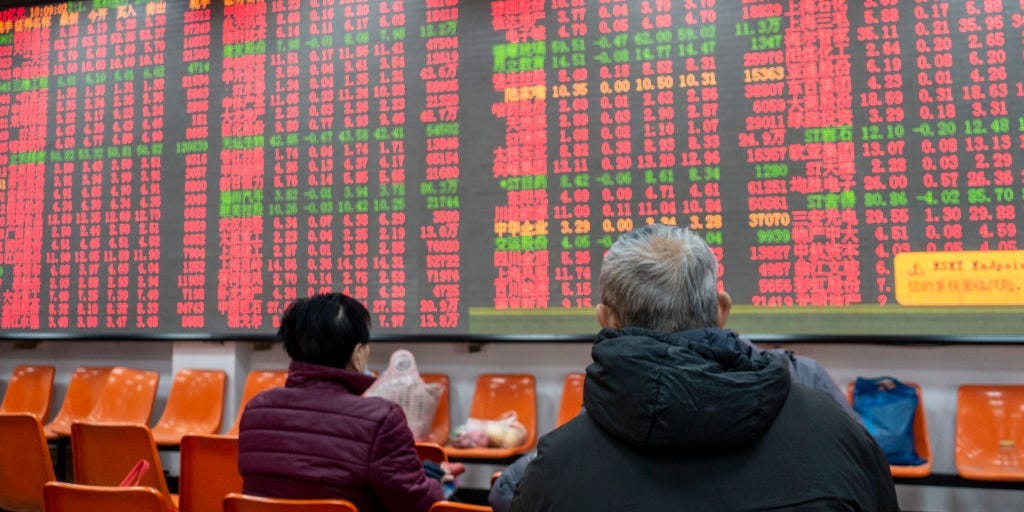
- Chinese stocks worth $3.2 trillion may face further regulatory attention, Goldman Sachs said.
- The internet, education, media, real estate, and healthcare industries could be targeted.
- Goldman highlighted four sectors set to benefit from new policies.
- Sign up here for our daily newsletter, 10 Things Before the Opening Bell.
Goldman Sachs said private-sector companies in China worth a combined $3.2 trillion face regulatory risks, and listed four industries that could be targeted by government officials.
"Industries such as internet, education, media & entertainment, real estate, and healthcare could be disproportionately exposed to further regulatory attention, everything else being equal," Goldman's strategists wrote in a Wednesday note.
A wave of regulation could have a range of potential impacts on corporates. It could result in buying opportunities and the chance to invest in structural winners in China, or in an extreme scenario, private enterprises could be nationalized or subject to regulated profitability, the team said.
The regulation of after-school tutoring,and comments from state-sponsored media outlets on key industries linked to people's daily lives, indicate that social welfare is high up on the policy agenda, Goldman added.
"Policymakers could prioritize social fairness/stability over the capital markets in areas that might be considered as social necessities," the note said.
Strategists including Kinger Lau, Timothy Moe, and Si Fu said they had recently held conversations with investors to discuss China's ongoing regulatory environment, and believe changes are set to continue.
"Most investors we have spoken to believe more regulations will be unveiled this quarter and next although the intensity/severity of regulation could moderate somewhat from recent peaks (i.e. turning a profit-seeking segment into non-profit may not be applicable to the broader market)," the team said.
Goldman suggested that investors should look for sectors that are set to benefit from Beijing's policies. But while the investment firm sees long-term value in China tech stocks, it said it would wait for more regulation clarity before re-engaging.
The team listed four sectors that could be policy beneficiaries:
- Foundational/ hard technology (semiconductor and B2B software)
- Green/renewable energy (solar, wind, and gas)
- New infra/industrials (electric vehicles supply chain, 5G networks)
- Social welfare/balance that is encouraged by policy, like sports